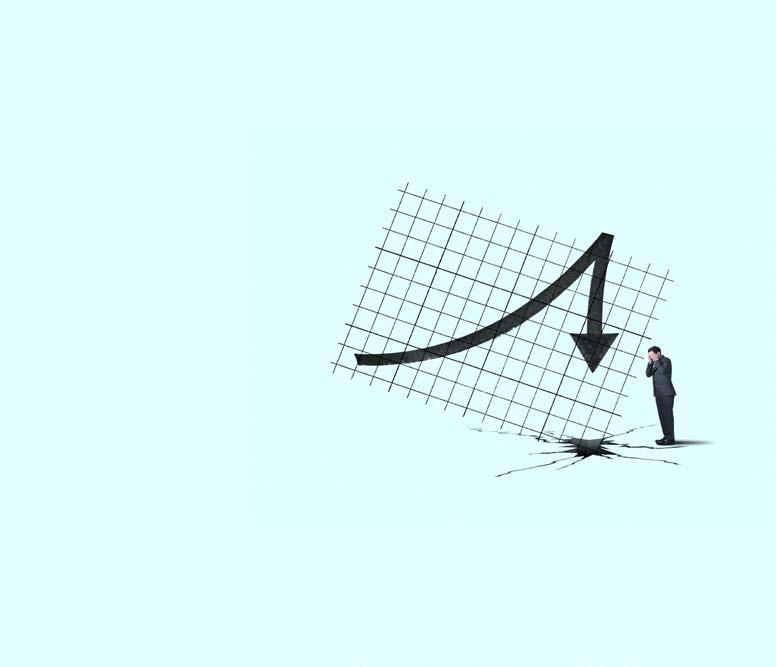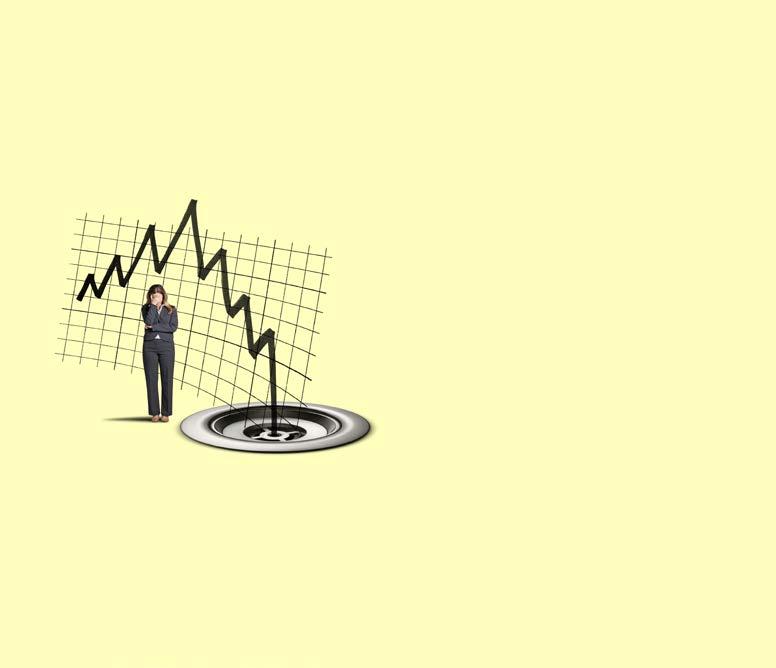
6 minute read
BUSINESS AND FINANCE The economic effects of coronavirus
from Issue 13
by Modern Work
Economic effects of coronavirus
By Ryan Barnett
Advertisement
The worldwide coronavirus pandemic has created a health crisis not seen since the Spanish Flu towards the end of WW1, over a century ago. However, the need to create social distance, and manage the outbreak through the control of movement and external borders, has already had a much bigger effect. Spending habits have automatically changed – focussing on food and goods which can be delivered, the global stock market is at its worst since the financial crisis and millions of people’s jobs are at risk as the economy grinds to a halt whilst many have already been lost. There are five million self-employed in the UK who will need both income and business support. They provide skills across all indus tries and sectors in the UK, contributing £305 billion to the economy last year. Several sectors are affected more than others: contractors in the arts and working in events felt the effects almost immediately. Tourism, construction and those selling goods came next. Personal trainers and yoga teachers suffered from gym closures, but many have gone online.
The Recruitment and Employment Confederation’s latest jobs report saw a sudden dip in permanent placements, much sharper than seen during the financial crisis. IPSE’s latest Confidence Index results indicated a drop-off in work and earnings and a six-year record low in both their business and the UK economy.
There are a wide range of other effects also taking their toll, with the world on the verge of an economic crisis, stocks, shares and currencies plummeting. Political leaders worldwide have
seen a boost to their approval ratings, known as the “rally around the flag effect” as people look to leaders for security. It may look, in hindsight, much more like a war effort, with the economy paused and then remodelled in front of us to provide what we need. Louis Vuitton and Brewdog moved into making antibacterial gel and factories are still being encouraged to build ventilators.
BEYOND THE LOCKDOWN MONTHS
The Government have outlined a package of support for the economy, with many measures targeted at the self-employed. Primarily, the postponement of IR35 for at least a year, which was causing increased uncertainty amongst freelancers. They have announced the Self-Employment Income Support Scheme (SEISS) for sole traders, after extensive consultation with IPSE. These schemes are built on top of loans, hardship funds and tax deferral pledges put in place to help businesses small and large, but more needs to be done. Limited companies, those who have become self-employed since April 2019, and those who earn more than the £50,000 cap have been left out of the scheme and will suffer the knock-on effects of this omission if no further measures of support are put in place. a
There are longer term implications beyond concerns for freelancers' finances as they wait for support. Interest rates are effectively at zero which will help with mortgage payments, but not savings (although we are all pretty used to that). Mortgage holidays of up to three months have been guaranteed by the Government which may help you access more immediate cash. The stress on international markets might affect people's
pensions, which the self-employed usually find it harder to save for, and ISAs and other investments, lowering their value. Often, they save using their businesses, but if they have to draw down on its assets this may drive insolvencies further down the line.
The Office for Budget Responsibility (OBR) believes the cost of the crisis could be a 35 per cent dip in GDP and an increase of over £200 billion in borrowing, as the state has to absorb the cost of replacing millions of incomes whilst tax revenue inevitably drops off. This is a bigger fall than seen during the financial crisis, and the largest in a century. Unemployment figures in the US have already surged to well over 15 million people.
The self-employed have been amongst those most affected so far. Freelancers who have the luxury of working from home as consultants, designers and writers, have reported


a drying up of work as bigger businesses seek to control spending and suspend projects. The creative sector, from films and TV to theatre and music production, is predominantly made up of freelancers, often registered as limited companies and work has been cancelled as far ahead as the end of 2021.
A lack of demand in everything apart from technology and food, and a lack of supply through the hit of labour shortages, could result in an “L” shaped recession. A deep contraction followed by a long depression waiting for the global economy to catch up with where it once was. This has been seen before, in the 1930s and 1970s to different degrees. It was only the huge spending on a global war in 1939 and state-led liberalisation in the UK under the 1979 Conservative Government which jolted the economy back to life after a decade of stagnation. What we are seeing is much more like the Great Depression, the impact of which we may not fully understand for years.
Derek Cribb

Chief Executive Officer, IPSE
It’s a turbulent time to become CEO of IPSE, but rest assured we’re working harder than ever for you
IT’S difficult to imagine a stranger time than this to start as CEO of an organisation – particularly one like IPSE, at the heart of the struggle to get support for the self-employed during the coronavirus pandemic. In my first week as CEO, I found myself in talks with the Chancellor about what support the self-employed needed and making the case for limited companies. Just in the last two weeks, I’ve been on Sky News and the Today Programme making that case, too. And all of this without even being able to go into the IPSE office in Westminster. These are trying times for freelancers and the self-employed, it’s true. IPSE’s research has shown the devastating effect the coronavirus crisis has had on freelancers’ incomes. But in my first few months here I have also seen how hard IPSE works for the self-employed, both supporting its members and also striving to make sure all freelancers’ challenges are known, understood and addressed. This year, IPSE has secured support for large parts of the self-employed community during the coronavirus crisis with the Self-Employment Income Support Scheme (SEISS). Although we didn’t get everything we asked for from the government, particularly for people who work through limited companies, we did persuade the Treasury to allow limited company directors to furlough themselves on the Job Retention Scheme. We worked hard to extend SEISS, too, and alerted the press to the groups that still aren’t getting the support they need: particularly limited companies and the newly self-employed. Now I’ve seen what we can do for the self-employed, rest assured that this year we’ll be working harder than ever to champion your interests. Not just on support during the coronavirus outbreak, but also the other issues that matter most to you, from clamping down on late payment to finally creating a tax system that is fair for all freelancers.








